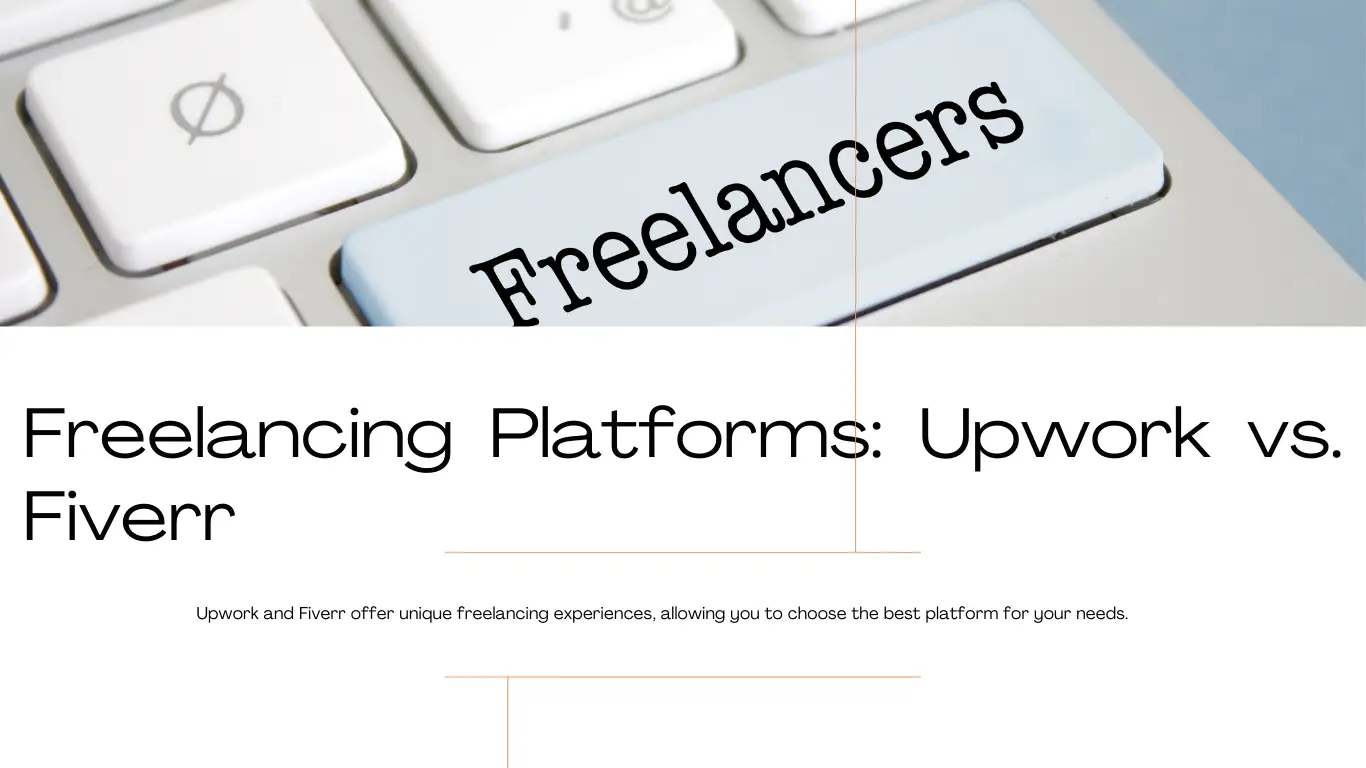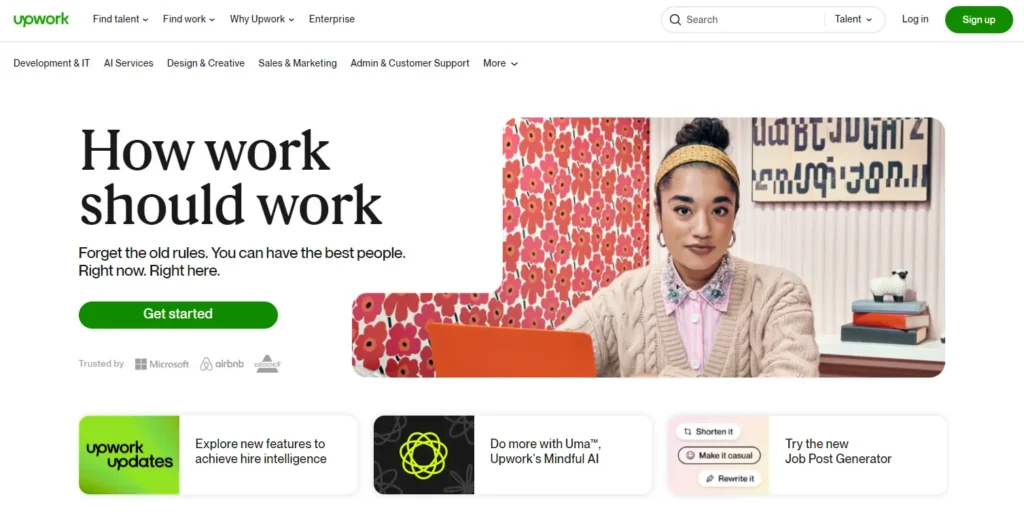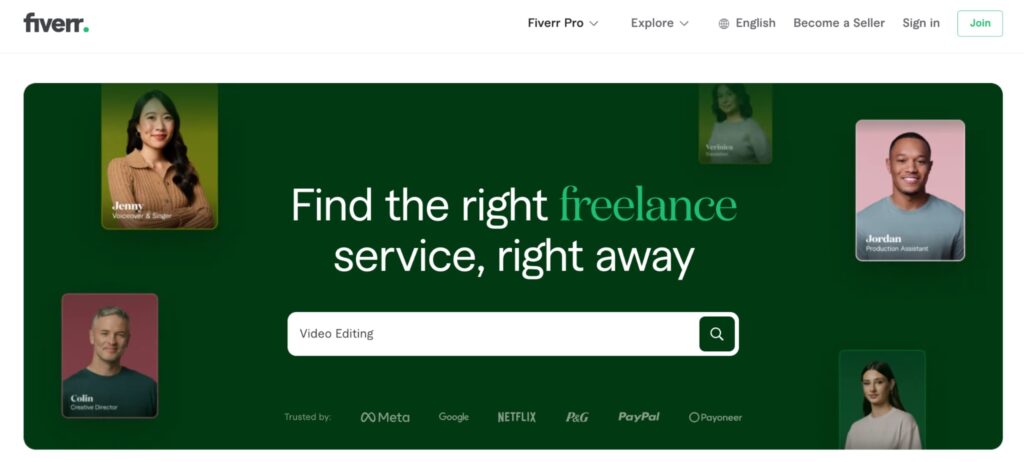Upwork or Fiverr in 2026: Which is Better?

A staggering 86% of freelancers report that their income increased within just 6 months of choosing the RIGHT platform for their skills. Yet most new freelancers waste months on the wrong one! 🚀
Hey ambitious freelancers! Ready to turn your skills into serious cash in 2026? Let’s cut through the noise and get straight to what matters – choosing between Upwork or Fiverr to skyrocket your freelance success.
I’ve spent the last five years building six-figure businesses on both platforms, and I’m here to spill ALL the tea on what actually works right now. Not theoretical fluff, but real strategies that are working TODAY.
The freelance revolution isn’t coming – it’s HERE. And picking the right platform isn’t just about preference anymore; it’s about strategically positioning yourself where YOUR specific skills will command the highest rates and attract the best clients.
- The Freelance Landscape Has Transformed in 2026
- Upwork vs Fiverr: Core Platform Differences in 2026
- Upwork or Fiverr for Beginners in 2026
- Where Will You Make More Money?
- The Client Factor: Who You'll Be Working With
- The Platform Tools That Impact Your Success
- Which Platform Is Right for YOUR Skills?
- The Fee Reality: Understanding Platform Costs
- Growth Paths: Building Your Freelance Career
- Frequently Asked Questions About Upwork or Fiverr
- Making Your Final Decision, Upwork or Fiverr?
The Freelance Landscape Has Transformed in 2026
The game has completely changed. Remote work isn’t just normalized – it’s preferred! Companies are building their entire business models around flexible talent, and freelancers who position themselves correctly are making more than their corporate counterparts.
Upwork or Fiverr both hold massive market share, but they’ve evolved in dramatically different directions. Understanding these differences is the key to your success.
Related: Legit ways to earn money online in Nigeria
How Upwork and Fiverr have Evolved
Upwork has doubled down on becoming the professional marketplace for serious, high-value work. Their AI-driven matching algorithms now connect specialists with enterprise clients looking for premium solutions. The barrier to entry has risen, but so have average project values.

Fiverr, meanwhile, has expanded from its “$5 gig” roots into a sophisticated service marketplace with enterprise solutions and specialized categories. Their focus on packaging and presenting services has created opportunities for freelancers to build recognizable personal brands within the platform.
Upwork vs Fiverr: Core Platform Differences in 2026
Before diving into specifics, let’s understand the fundamental differences that shape your experience on each platform:
The Upwork Experience
On Upwork, you’re essentially building a professional practice. You hunt for opportunities through job boards and pitch customized proposals to potential clients. Projects tend to be longer-term and relationship-focused, with payment structures favoring ongoing work. Your success depends on your ability to win proposals and maintain client relationships over time.
The Fiverr Approach
On Fiverr, you’re running a digital storefront. You create packaged services (gigs) with clear deliverables, and clients find and purchase your pre-defined offerings. Projects are typically more transactional and shorter-term, with fixed pricing as the standard. Your success hinges on your ability to stand out in search results and deliver consistent quality that generates positive reviews.
These fundamental differences shape everything from how you market yourself to how you structure your services and build client relationships.
Upwork or Fiverr for Beginners in 2026
Starting out is tough – I’ve been there! The platform you choose can significantly impact how quickly you gain traction.
Starting on Fiverr as a Beginner
Fiverr offers several advantages for those just starting out. The barrier to entry remains lower than Upwork, with no proposal writing or “connects” required. You can focus on creating a few stellar gig packages and potentially see faster first sales through the New Seller boost. The downside? The marketplace is crowded in popular categories, making visibility your biggest challenge from day one.

Beginning Your Upwork Journey
Upwork’s approach to beginners has changed significantly. They’ve implemented a more selective application process focusing on in-demand skills. You’ll need to master the art of proposal writing quickly, but higher-value projects are accessible from the start. The learning curve is steeper, but the potential for landing substantial projects early is higher.
Where Will You Make More Money?
Let’s talk cash – because that’s why we’re all here! The earning potential varies dramatically depending on your skills and strategy.
On Upwork, top performers in 2026 are earning through value-based pricing rather than hourly rates, establishing long-term contracts with retainer arrangements, and leveraging specialized expertise in emerging technologies. Many are even building micro-agencies under their profiles. The average skilled professional on Upwork now earns between $55-95/hour, with specialists in AI, blockchain, and custom development easily commanding $150-300/hour.
Fiverr’s top earners are leveraging premium packaging with strategic upsells, combining volume with automation, and creating specialized gigs in trending categories. They’re focused on building customer loyalty and repeat business. While Fiverr’s entry point is lower, top sellers are creating packages worth $2,000-5,000 and completing multiple sales weekly through optimized workflows.
The Client Factor: Who You’ll Be Working With
The clients you attract fundamentally shape your freelance experience. Here’s how they differ:
Typical Upwork Clients in 2026
Upwork now primarily attracts established businesses seeking specialized talent, startups with serious funding, and clients with long-term project needs. These clients typically have defined scopes and are willing to pay premium rates for expertise. They’re looking for professionals who can integrate into their teams and deliver consistent value over time.

Fiverr’s Client Base Today
Fiverr’s audience includes entrepreneurs and small business owners, other freelancers needing complementary services, and larger companies testing services before bigger commitments. These clients often have immediate, specific needs and value clarity in deliverables and timelines. They tend to be more price-sensitive but also appreciate the convenience of packaged services.
This client difference impacts everything from how you communicate to how you structure your offerings and manage relationships.
The Platform Tools That Impact Your Success
Both platforms have invested heavily in features that can make or break your freelance operation.
Upwork’s standout tools now include project milestone tracking with escrow protection, time tracking with automatic screenshots, integrated project management capabilities, and advanced team collaboration features. These tools are designed to support complex, ongoing projects and build client trust.
Fiverr has countered with streamlined order management systems, automated delivery and revision processes, advanced analytics for gig performance, and integrated CRM tools for client management. Their focus is on efficiency and scalability for service providers.
The platform you choose should align with how you prefer to work and manage your client relationships.
Which Platform Is Right for YOUR Skills?
Certain skills naturally perform better on one platform versus the other. Here’s the breakdown for 2025:
Upwork has become the go-to for custom software development, business strategy and consulting, complex creative projects, technical writing and documentation, and data science and AI implementation. These services typically require significant customization and ongoing collaboration.
Fiverr excels for digital marketing services, video production and editing, graphic design and branding, voice acting and audio production, and translation and transcription. These services can often be more standardized and delivered as distinct packages.
If your skills align strongly with either platform’s strengths, that’s a powerful indicator of where to focus your efforts.
The Fee Reality: Understanding Platform Costs

Your net income depends heavily on understanding fee structures. Here’s the breakdown:
Upwork’s Fee Structure in 2026
Upwork uses a sliding scale based on lifetime client billing: 20% for the first $500 with each client, 10% for lifetime billings between $500.01 and $10,000, and 5% for lifetime billings exceeding $10,000. Additional costs include connects for submitting proposals (approximately $0.15-$0.90 each), membership options (Basic free vs. Premium at $14.99/month), and payment processing fees (2.75% for most withdrawal methods).
Fiverr’s Commission Model
Fiverr maintains a straightforward but higher overall commission: 20% flat rate on all transactions regardless of size or history. There are additional fees for faster withdrawals and optional promotional features for additional visibility. This simplicity comes at the cost of never decreasing your commission percentage, even with loyal clients.
This fee difference becomes increasingly significant as you scale your freelance business.
Growth Paths: Building Your Freelance Career

Both platforms offer advancement opportunities, but with different approaches:
Upwork focuses on Top Rated and Top Rated Plus status for consistent performers, Rising Talent designation for promising newcomers, Enterprise-level talent pools for premium opportunities, and agency structures for team-based work. Their system rewards long-term relationships and consistent quality.
Fiverr provides Level One, Two, and Top Rated Seller progression, Fiverr Pro for vetted premium talent, Fiverr Business for enterprise connections, and Fiverr Select for invitation-only elite sellers. Their system emphasizes order volume, completion rate, and customer satisfaction.
Your long-term career goals should inform which advancement path aligns better with your vision.
Frequently Asked Questions About Upwork or Fiverr
Making Your Final Decision, Upwork or Fiverr?
After using both platforms, here’s my honest take:
The “which platform is better” question misses the point entirely. The real question is: Which platform better aligns with YOUR unique strengths, work style, and business goals?
Choose Upwork if you thrive on client consultation and relationship building, prefer diving deep into complex projects, have specialized technical expertise, value stability over transaction volume, and excel at persuasive writing and proposals.
Choose Fiverr if you prefer creating standardized service packages, have clear deliverables, want more control over your offerings, can benefit from volume and efficiency, and excel at visual presentation and marketing.
Or take the approach I recommend: Start with the platform that best matches your current strengths, establish a solid reputation there, then expand to the second platform to capture additional market share.
The freelance revolution has created unprecedented opportunities. Whether you choose Upwork or Fiverr (or both!), your success ultimately depends on understanding your unique value, delivering exceptional quality, and strategically positioning yourself where your ideal clients are already looking.
What’s holding you back from freelance success? Drop me a comment below with your biggest question.



